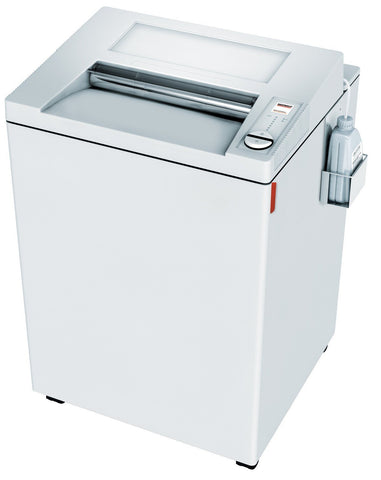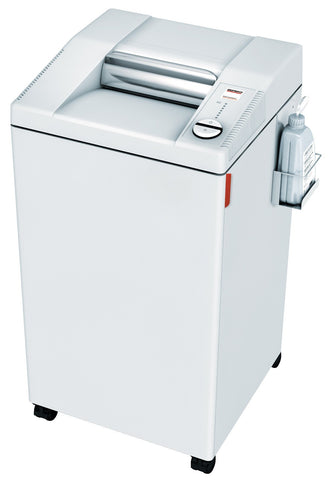Although most information processing has gone digital, there are plenty of documents in your home or office with confidential information.
These papers can pile up over the years, and at some point, you have to get rid of them. You can't just throw away confidential documents, though.
It's best to shred them first.
This lowers your risk of identity theft and fraud, and the major headache of fixing these issues. Plus, it also helps the environment.
Here are ten kinds of documents you definitely need to shred.
1. Credit Card Information
Credit cards are one of the most popular things that come to mind when thinking of identity theft.
As much as you worry about sneaky gas pumps and skilled online hackers, you need to pay attention to your card statements. This could be anything from some sort of credit update to a monthly bill that gets mailed to you.
It could even be credit card offers for cards you haven't even activated.
Keep all of these and toss them in your shredder as soon as you can.
2. Pay Stubs
While you're collecting statements to shred, don't forget your pay stubs.
Some companies still send you a physical copy of your check even if you get direct deposit. This often happens when you get your first or last payment from your new or old job.
Another way these confidential documents add up is if you're keeping up with them for tax purposes or other claims.
Keep them safe until you need them, then get rid of them properly.
3. Bank Statements
Do you track payments and credit charges on monthly bank statements?
Shred these, too.
Such files carry everything an identity thief needs to compromise your accounts. This includes account numbers, personal information, and spending habits.
Don't forget to shred investment files, withdrawal and deposit slips, and stock projections as well.
4. Receipts
You probably don't have a stack of receipts laying around somewhere.
But, if you keep these for whatever reason, shred them right away.
Receipts carry just enough personal and card information to put yourself at risk.
When enough of them get into the wrong hands, you could be in trouble. Sometimes, it only takes one receipt to get the job done.
These confidential documents are especially important to shred when you've used company cards for a purchase. Such cases don't just put you at risk, they can threaten your entire team.
5. Hiring Information
Speaking of your team, did you recently get a new job?
If any part of your onboarding process was done on paper, shred it.
Most of the time, you'll have access to the information you need through HR or the manager you report to. This means there's no need to keep stacks of personal information with your social security number and bank numbers laying around.
Should you feel like it's necessary to keep your new job's documents, do so in a safe place.
Still, at least make the effort to shred the information from your old company.
6. Outdated IDs
Remember to shred your ID with papers from your past job.
It might not be of use to you anymore, but it leaves the door open for someone to compromise the company.
Other IDs that are considered confidential documents include outdated driver's licenses, passports, and medical cards. These are highly-sensitive personal documents.
You should even shred any certifications you're no longer using, or old certificates you've updated.
Basically, anything with your name or face on it that you don't use anymore has got to go.
7. Old Taxes
Another important category of confidential documents is old tax files.
You may be holding on to these for business or personal purposes. They can help you see a trend in income and expenses at your startup or in the years you made some big life changes.
But, they can also open a huge backdoor into your private accounts.
Keep everything locked tight by shredding old taxes instead of throwing them away.
Consider putting what you need on a safe digital file, so you don't have to track a bunch of papers as the years go by.
8. Old Medical Files
Instead of tracking finances, you might be holding on to old medical history.
People often do this after surgeries or intense treatments. They also hold on to the information of loved ones like elderly parents or young children.
At some point, though, the files are no longer needed.
You owe it to yourself, and the people you care about, to shred such confidential documents.
9. Junk Mail
Although it's easy to see the gravity of the confidential documents mentioned above, take junk mail seriously, too.
Junk mail is anything from credit cards and timeshare offers you're not interested in, to the magazines you keep forgetting to unsubscribe from.
All of these have your name, address, and, sometimes, payment information.
As such, you need to shred them. Thankfully, if you know it's already junk mail, you can just shred everything in the envelope without even having to open it.
You might need a strong shredder for the thicker packages, though.
10. Boarding Passes
There are thick bunches of junk mail and then there's an itty-bitty boarding pass, which also should be shredded.
The easiest way to prevent giving away your information on this kind of confidential document is to use a digital boarding pass.
Should you print it for whatever reason, remember -- it has travel plans and frequent flier miles on it.
Wouldn't it be horrible to get back from Jaimaca and realize you lost the miles you wanted to use to go to Europe? That's possible, and so is much more.
But, all of these dangers can be fought with a quick effort to shred your travel papers.
The Right Shredder to Handle Your Confidential Documents
It's one thing to know which documents need to go through a shredder. It's another to know what kind of shredder you need!
There are many different types and models out there to choose from. These range in price, purpose, and even shredding style.
Thankfully, we've made understanding such choices much easier.
Click here to see the differences between each shredder.




